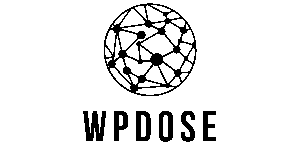Blockchain technology is transforming industries by providing secure and transparent solutions. Its decentralized nature allows for trustless transactions, making it a game-changer across various sectors. From finance to supply chain management, the potential applications of blockchain are vast and varied.
As businesses increasingly recognize the benefits of this innovative technology, they’re exploring diverse use cases that enhance efficiency and reduce costs. Whether it’s ensuring product authenticity or streamlining cross-border payments, blockchain is paving the way for a new digital landscape. Understanding these use cases is crucial for anyone looking to stay ahead in today’s rapidly evolving market.
Overview Of Blockchain Technology
Blockchain technology operates as a decentralized digital ledger that records transactions across multiple computers securely and transparently. Each block in the chain contains a series of transactions, and once added, it remains immutable, ensuring a permanent record. This structure enables participants to verify and trace transactions without the need for intermediaries, enhancing trust among users.
Key characteristics of blockchain include its transparency, security, and decentralization. Transparency ensures all participants can view transaction history, fostering accountability. Security comes from cryptographic techniques that safeguard data against unauthorized access. Decentralization distributes control across a network rather than a single entity, reducing risk of manipulation or failure.
Different types of blockchain exist, including public, private, and consortium blockchains. Public blockchains, like Bitcoin and Ethereum, allow anyone to join and participate. Private blockchains restrict access to certain authorized users, commonly used by enterprises to enhance privacy. Consortium blockchains enable multiple organizations to share control, often used in collaborative projects.
Overall, blockchain technology has the potential to disrupt traditional business models, influencing sectors such as finance, healthcare, supply chain, and more. By understanding its mechanisms and benefits, businesses can leverage blockchain to innovate processes and gain a competitive edge.
Key Blockchain Use Cases

Blockchain technology enhances transparency and security across various industries. Its applications span financial services, supply chains, healthcare, real estate, and voting systems.
Financial Services
Blockchain enables secure, real-time transactions in financial services. It fosters faster cross-border payments and reduces transaction fees. Cryptocurrencies, like Bitcoin and Ethereum, utilize blockchain for secure peer-to-peer transactions. Smart contracts automate compliance and execution, minimizing the need for intermediaries. According to a report by Deloitte, 79% of financial services executives believe blockchain will disrupt their industries within the next five years.
Supply Chain Management
Blockchain enhances traceability and accountability in supply chain management. It provides a transparent record of product journeys, ensuring authenticity and reducing fraud. Companies like IBM and Maersk use blockchain to streamline operations and improve efficiency. A study by Accenture reveals that 83% of supply chain executives perceive blockchain as a transformative technology. Real-time data sharing among stakeholders minimizes errors and enhances trust.
Healthcare
Blockchain improves data sharing and security in healthcare. It enables secure patient records management, ensuring data integrity and privacy. Blockchain facilitates interoperability among different healthcare systems. Patients maintain control over their data, granting access to healthcare providers as needed. A report from the World Economic Forum indicates that blockchain could save the healthcare industry up to $100 billion annually through improved administrative efficiencies.
Real Estate
Blockchain simplifies real estate transactions by providing secure and immutable property records. It reduces the time and costs associated with property transfers, eliminating the need for extensive paperwork. Smart contracts facilitate automatic execution of agreements when conditions are met, enhancing transaction speed and transparency. According to a study by Deloitte, 30% of real estate professionals view blockchain as a key technology for innovation in the sector.
Voting Systems
Blockchain enhances the security and transparency of voting systems. It enables verifiable and tamper-proof vote recording, increasing trust in electoral processes. Voters can track their votes, ensuring their participation is accounted for while maintaining anonymity. Countries like Estonia have successfully implemented blockchain for digital voting, demonstrating its potential. Research by the MIT Media Lab suggests that blockchain-based voting can significantly reduce fraud and enhance accessibility.
Emerging Blockchain Use Cases
Emerging blockchain use cases showcase the versatility of the technology across various sectors, presenting innovative solutions to traditional challenges.
Decentralized Finance (DeFi)
Decentralized Finance (DeFi) revolutionizes financial services by removing intermediaries and enabling peer-to-peer transactions. DeFi platforms utilize smart contracts to automate processes, providing features like lending, borrowing, and yield farming. Users can access financial services globally without reliance on banks, increasing financial inclusion. According to a report by DeFi Pulse, the total value locked in DeFi applications surpassed $100 billion in 2023, demonstrating significant growth and user adoption.
Non-Fungible Tokens (NFTs)
Non-Fungible Tokens (NFTs) enable ownership and trade of unique digital assets on the blockchain. Each NFT represents verifiable ownership of items like digital art, collectibles, and virtual real estate. The market for NFTs reached $25 billion in 2022, driven by interest from artists, gamers, and brands looking to monetize digital content. NFTs integrate with platforms like Ethereum, facilitating secure transactions and creator royalties, thus transforming how creators monetize their work.
Internet of Things (IoT)
Blockchain enhances the Internet of Things (IoT) by providing secure communication and data integrity among connected devices. Smart contracts govern interactions between devices, enabling automated transactions based on predefined conditions. For instance, supply chain IoT sensors can autonomously trigger payments when conditions are met, improving operational efficiency. Research from IBM indicates that 40% of enterprises are exploring blockchain for IoT applications, highlighting its potential to secure data exchange and streamline processes.
Blockchain technology stands at the forefront of innovation across multiple sectors. Its ability to provide secure and transparent solutions is reshaping how businesses operate and interact with one another. As industries continue to explore and adopt various use cases, the potential for enhanced efficiency and trust grows significantly.
Understanding these applications is crucial for businesses aiming to stay competitive in today’s fast-paced environment. The ongoing evolution of blockchain will likely unlock even more opportunities, driving transformation and fostering a new era of digital interaction. Embracing this technology can lead to substantial benefits, positioning organizations for success in the future.
